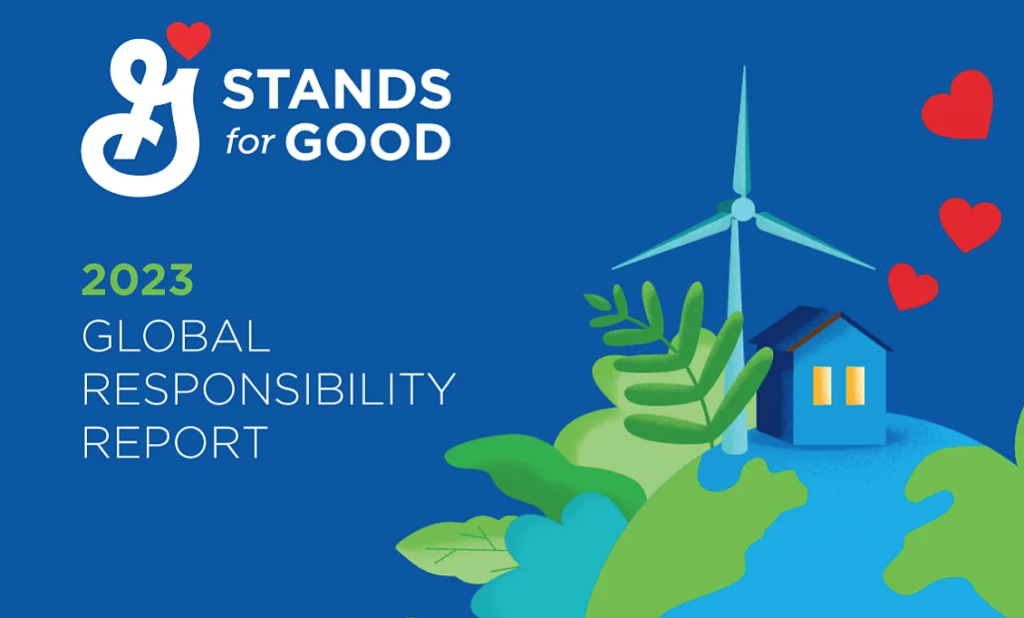As the world becomes increasingly aware of the environmental impact of industrial practices, food companies have taken steps to address sustainability through various green initiatives. These efforts include everything from reducing greenhouse gas (GHG) emissions to implementing more ethical supply chains.
General Mills, for example, recently released its Global Responsibility Report for the 2022 fiscal year, detailing its environmental and nutritional commitments. Last month, Nestlé released its Creating Shared Value and Sustainability Report 2022 in which it outlines its ambitious sustainability goals. While not exclusively a food company, Unilever also laid out a roadmap to net zero GHG emissions.
These food giants, along with many others, have a significant impact on the environment, as their operations rely heavily on natural resources. The production and transportation of food also contribute to GHG emissions, and food waste is also a growing concern. Food companies have a responsibility to address these environmental impacts and work towards more sustainable practices.
Here’s what General Mills, Nestlé and Unilever are doing to address these concerns.
Related: Is Fiber Based Packaging the Next Trend in Sustainable Food Packaging?
General Mills’ Green Initiatives
General Mills produces some of the world’s most recognizable brands, including Betty Crocker, Cheerios and Pillsbury. The company has made a significant commitment to sustainability, setting a goal to reduce GHG emissions across its value chain by 30 percent by 2030 through various green initiatives. It has also set a target of 100 percent renewable electricity by 2030 and is investing in renewable energy projects to achieve this goal.
General Mills has also taken steps to address water conservation, as water is a critical resource in many of the company’s supply chains. The company has set a goal to reduce water usage by 35 percent across its operations by 2025 through various green initiatives. This goal is particularly significant, as water scarcity is a growing concern around the world.
Nestlé’s Sustainability Goals
Nestlé has set ambitious targets to achieve carbon neutrality by 2050, with a focus on reducing emissions across its supply chain. The company is also taking steps to conserve water, with a goal to reduce its water usage by 50 percent by 2030. Additionally, Nestlé is working to ensure that its supply chains are sustainable and ethical, with a focus on responsible sourcing of raw materials through various green initiatives.
One way that Nestlé is addressing sustainability is through its Nestlé Cocoa Plan. This initiative is focused on improving the livelihoods of cocoa farmers and ensuring the long-term sustainability of cocoa farming. The company is working with local communities to provide training on sustainable farming practices, as well as supporting initiatives to increase access to education and healthcare.
Unilever’s Roadmap to Net Zero
Unilever is another major food company committed to sustainability through various green initiatives. The company has set a goal to achieve net zero emissions across its value chain by 2039, with a focus on reducing GHG emissions from its products. Unilever is also focused on reducing water usage, with a goal to achieve water neutrality by 2030 through various green initiatives. This means that the company will replenish all of the water it uses in its products and operations, ensuring that it does not contribute to water scarcity.
Like Nestlé, Unilever has also taken steps to ensure that its supply chains are sustainable and ethical through various green initiatives. The company has implemented their Sustainable Agriculture Code, which sets standards for sustainable farming practices and ensures that suppliers meet these standards. Additionally, Unilever is committed to eliminating deforestation from its supply chains and has set a goal to achieve zero net deforestation by this year.
These companies have set ambitious targets to reduce GHG emissions, conserve water and ensure that their supply chains are sustainable and ethical. As these companies work towards their sustainability goals through various green initiatives, they are not only reducing their environmental impact but also contributing to a more sustainable future for all.












Join or login to leave a comment
JOIN LOGIN